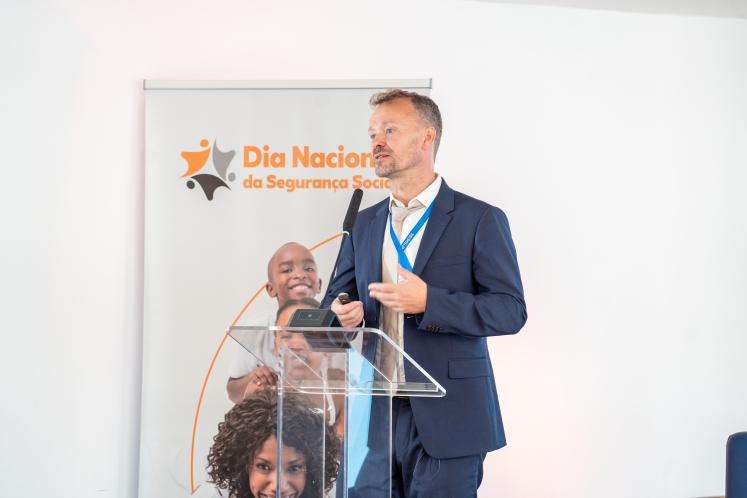As part of the national celebrations marking 50 years of Cabo Verde’s independence, the Instituto Nacional de Previdência Social (INPS) hosted on 15 July its National Conference under the theme “Innovation, Social Justice, and Inclusion in 50 Years of Independence - Achievements and Perspectives”.
A cornerstone session of the conference focused on “Digital Transformation and the Future of Social Security: Critical Services, Inclusion, and Sustainability” and featured the participation of the United Nations University - Operating Unit on Policy-driven Electronic Governance (UNU-EGOV).
Speaking at this pivotal moment in Cabo Verde’s history, Morten Meyerhoff Nielsen, EGOV advisor and research line coordinator from the UNU-EGOV, delivered a compelling presentation titled “Inclusive Innovation: AI and Technology for Accessible, Adaptive, and User-Centric Social Security.”
In his presentation and panel contributions, Nielsen emphasized the urgency of achieving universal social protection as over 2 billion people remain uncovered or inadequately covered, with the poorest being most affected. Morten underlined the need for inclusive policies aligned with global frameworks such as the SDGs and the UN Convention on the Rights of Persons with Disabilities.
While technology is meant to enhance service delivery and governance, uptake is still hampered by lack of awareness, trust, and user-centric design.
Data, AI and service design are nonetheless a game-changer in relation to increased productivity and cost efficiency.
Morten highlighted the 4Ps of next-gen preventive, Predictive, Proactive, and Personalized services and the 4Ds of Deciding, Designing, and Delivering with Data models, advocating for AI-enabled systems that shift social protection from reactive to anticipatory, especially critical for vulnerable populations.
He argued that digital transformation demands not only new technologies but also upskilling, interdisciplinary teams, and structural governance changes, supported by pilot-to-scale strategies and inclusive design principles.
Morten concluded with a call to action: that social security institutions must embed ethical, inclusive, and adaptive practices to truly serve all citizens in a digital era, especially as AI and data become central to defining and delivering critical services.
The session underscored Cabo Verde’s forward-looking commitment to equity, innovation, and digital transformation in the next phase of its development.
For more on digital inclusion and AI in social security, please see:



